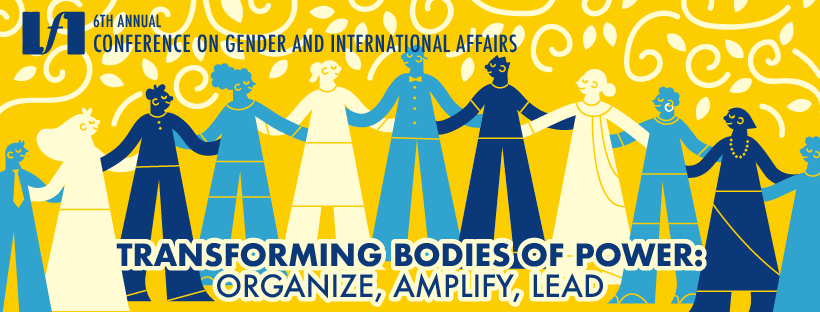6th Annual Conference on Gender and International Affairs
The Conference on Gender and International Affairs strives to create a platform for academics, practitioners, and community leaders to come together to discuss how gender affects and is affected by today’s global issues. Going into its sixth year, the Conference continues the tradition of student and faculty advocacy at Fletcher to integrate gender analyses into our work.
This year’s theme, Transforming Bodies of Power: Organize, Amplify, Lead, expands upon the previous five conferences and our combined calls to action in a moment that calls for transformational leadership – leadership from bodies who have historically been barred from decision-making spaces: female, queer, trans, gender nonconforming, BIPOC, disabled and young bodies, and especially those of intersecting marginalized identities. Future-thinking leaders of our generation and of generations past inspire us to act, think critically, and expand our perspectives. Our goal is to expand the understanding of leadership, international and domestic alike, and challenge ourselves to re-conceptualize dominant perceptions of leadership – what qualities leaders possess, what tools they use and how they engage with institutional bodies of power. In doing so, they will help us utilize gender as an analytical tool and encourage inclusive dialogue and learning within our communities.
The Conference would like to create an environment where students and the general public alike will have the opportunity to draw from the dialogues throughout the events in order to take action and foster progressive change themselves. Through this open dialogue, the Conference also endeavors to emphasize the necessity of intersectionality in understanding the gendered dimensions of politics and international affairs.
We will explore various themes with the support of activists and content experts from around the globe via virtual workshops in the Fall and an in-person conference in the Spring. Several thematic areas include: feminist foreign policy, how to understand bodies of power, resisting authoritarianism through grassroots activism, and the intersection of appearance, identity, and leadership.

